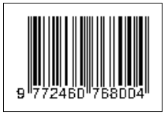Sistem Pakan Ikan Otomatis Berdasarkan Kualitas Air Menggunakan Metode Fuzzy Mamdani
Rizki Fajar Kurniawan(1*), Ahmad Ashari(2), Roghib Muhammad Hujja(3)
(1) Departemen Ilmu Komputer dan Elektronika, FMIPA UGM, Yogyakarta
(2) Departemen Ilmu Komputer dan Elektronika, FMIPA UGM, Yogyakarta
(3) Departemen Ilmu Komputer dan Elektronika, FMIPA UGM, Yogyakarta
(*) Corresponding Author
Abstract
In addressing the global food scarcity crisis associated with global warming, the development of the fisheries sector becomes crucial, particularly in Indonesia. This research discusses the innovation of an automatic fish feeding system based on water quality detection using fuzzy logic control. The system integrates sensors for temperature, pH, and TDS to measure the conditions of fish pond water. Fuzzy logic control is employed to regulate the intensity of fish feeding based on environmental conditions. The system's performance is tested by comparing the fuzzy results from Matlab simulation with the implementation on Arduino. Despite differences, the results show a high level of consistency between the two systems. However, field trials reveal result variations, emphasizing the challenges of dealing with unpredictably changing environmental conditions. The conclusion highlights the disparities between simulation and field implementation, underscoring the importance of adjustments and calibration in practical applications.
Keywords
Full Text:
PDFReferences
[1] X. Feng, Q. Li, H. Wang, and L. Sun, “Characterizing industrial control system devices on the Internet,” Proc. - Int. Conf. Netw. Protoc. ICNP, vol. 2016-Decem, pp. 1–10, 2016, doi: 10.1109/ICNP.2016.7784407.
[2] N. Nursobah, S. Salmon, S. Lailiyah, and S. W. Sari, “Prototype Sistem Telemetri Suhu Dan Ph Air Kolam Budidaya Ikan Air Tawar (Ikan Nila) Berbasis Internet of Things (Iot),” Sebatik, vol. 26, no. 2, pp. 788–797, 2022, doi: 10.46984/sebatik.v26i2.2053.
[3] A. Rizal, G. Aditya, and H. Nurdiansyah, “Fish Feeder for Aquaculture with Fish Feed Remaining and Feed Out Monitoring System Based on IoT,” Procedia Eng. Life Sci., vol. 1, no. 2, 2021, doi: 10.21070/pels.v1i2.983.
[4] A. Putra, D. Finasthi, S. Y. A. Putri, and S. Aini, “Komoditas akuakultur ekonomis penting di Indonesia,” War. Iktiologi, vol. 6, no. 3, pp. 23–28, 2022.
[5] D. Li, Z. Wang, S. Wu, Z. Miao, and L. Du, “Automatic recognition methods of fish feeding behavior in aquaculture : A review,” Aquaculture, vol. 528, no. May, p. 735508, 2020, doi: 10.1016/j.aquaculture.2020.735508.
[6] R. Aisuwarya and E. F. Suhendra, “Development of Automatic Fish Feeding System based on Gasping Behavior,” 2018 Int. Conf. Inf. Technol. Syst. Innov. ICITSI 2018 - Proc., pp. 470–473, 2018, doi: 10.1109/ICITSI.2018.8696050.
[7] A. Sifa, T. Endramawan, Badruzzaman, M. Fikri Al-aziz, A. Rifa’i, and Suhenda, “Pengujian Performansi Mesin Pelontar Pakan Ikan Otomatis,” Pros. Ind. Res. Work. Natl. Semin., pp. 53–58, 2019, [Online]. Available: https://jurnal.polban.ac.id/proceeding/article/view/1371.
[8] M. Cholilulloh and D. Syauqy, “Implementasi Metode Fuzzy Pada Kualitas Air Kolam Bibit Lele Berdasarkan Suhu dan Kekeruhan,” J. Pengemb. Teknol. Inf. dan Ilmu Komput., vol. 2, no. 5, pp. 1813–1822, 2018.
[9] A. Wibisono, D, S. Aminah, and G. Maulana, “Perancangan Sistem Monitoring Kualitas Air Tambak Udang Berbasis Internet Of Things,” SNIA (Seminar Nas. Inform. dan Apl., vol. 4, no. 1, pp. 1–5, 22019.
[10] W. C. Hu, L. B. Chen, B. K. Huang, and H. M. Lin, “A Computer Vision-Based Intelligent Fish Feeding System Using Deep Learning Techniques for Aquaculture,” IEEE Sens. J., vol. 22, no. 7, pp. 7185–7194, 2022, doi: 10.1109/JSEN.2022.3151777.
[11] M. Z. Siambaton, Q. Syifa, and S. Syahwin, “Penerapan Algoritma Fuzzy Logic Mamdani pada Sistem Pelurusan Shaf Cerdas Berbasis Arduino Uno R3,” Remik, vol. 6, no. 3, pp. 380–388, 2022, doi: 10.33395/remik.v6i3.11504.A. A. Raj, V. K. Swasthik, A. Rakesh, and D. M. Saravanaraj, “Arduino based Fish Monitoring System,” Int. J. Sci. Eng. Res., vol. 11, no. August, pp. 1622–1627, 2020
Article Metrics
Refbacks
- There are currently no refbacks.
Copyright (c) 2025 IJEIS (Indonesian Journal of Electronics and Instrumentation Systems)

This work is licensed under a Creative Commons Attribution-ShareAlike 4.0 International License.
View My Stats1







